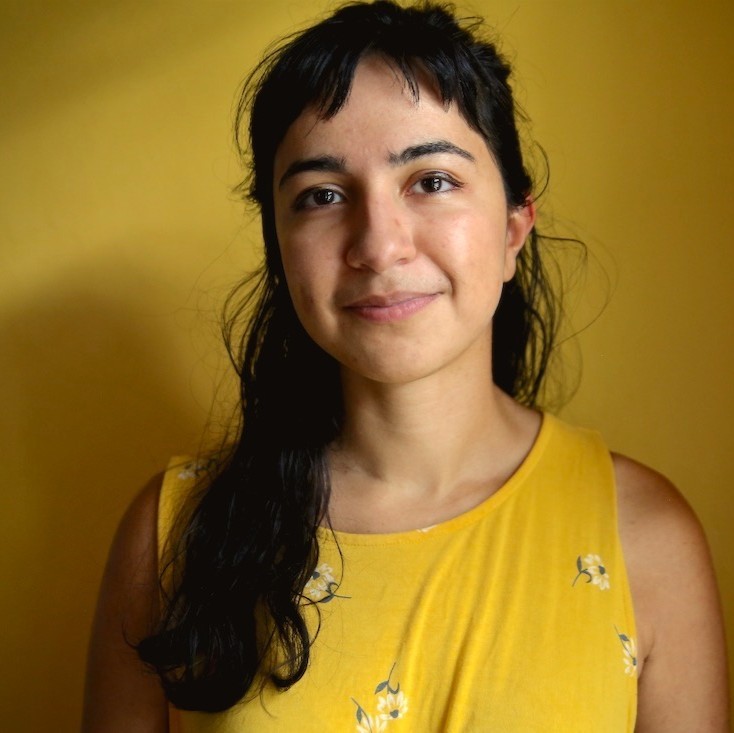I’m grateful to have survived the last two years, thanks to gardening, a semi-stable income, and a strong community of close family and friends. But a continued, gaping hole in my life comes from the small community interactions that I’ve missed most. The familiar face on a weekly bus ride. The quiet companionship of a public work space. The rare game of chess with a stranger. These all happened to occur at, or on the way to, my local library.
The concept of public libraries is revolutionary in America’s capitalist, individualist culture. They are free, taxpayer-funded spaces, open to absolutely anyone to access information and receive help with daily tasks. During operating hours, libraries are open to people who have no other way to escape high or low temperatures. They offer free programming for seniors, parents and children, and people who speak languages other than English. Whether you lack legal status or a permanent address, you can acquire a library card—though barriers, including a form of ID and a letter from a shelter, may apply.
Libraries have filled part of the void left by chronic underfunding of our systems for mental health, low-income housing, and other social services. Increasingly, librarians can serve as substitute case workers of sorts, helping visitors apply for rent assistance or search for free food or shelter. During the opioid epidemic, librarians in hard-hit areas became first responders trained to administer Narcan. A library’s job is simple, yet also radical and profound: help improve people’s lives—through stories, information, or connection—without agenda.
(These open, egalitarian ideals are one of the many reasons why coworking space Switchyards’ recent announcement of a private library concept with a $100/month membership—described, hilariously, as a “gym for the mind,” no less—was rightfully dragged.)
As a child, my local library on the border of Norcross and Peachtree Corners was a haven from the increasingly economically segregated schools and towns forming around it. It was one of the few places where the true totality of my community coalesced: white lacrosse moms, folks stuck living in nearby motels, Hispanic business owners, an unfortunately awkward South Asian teenager sneaking mystery and romance novels back home (hello).
The pandemic has clarified the role of libraries in that it has shown what happens when they no longer serve as meeting places. “Social infrastructure,” like libraries, childcare centers, religious spaces, and parks, “fosters contact, mutual support, and collaboration among friends and neighbors; when degraded, it inhibits social activity, leaving families and individuals to fend for themselves,” writes sociologist Eric Klinenberg in Palaces for the People. Libraries are places “where ordinary people with different backgrounds, passions, and interests can take part in a living democratic culture.”
And yet, we treat this crucial role as an afterthought. Over the years, public libraries have reduced their hours, and much of their infrastructure has been in need of renovation. The increased popularity of ebooks and audiobooks, especially during the pandemic, has demanded more from public library budgets. One example: their lending rights, sold by for-profit companies like OverDrive, often expire and must be renewed.
The Atlanta-Fulton Public Library System’s budget, administered by Fulton County, has replenished since drastic budget cuts during the 2008 recession, up to $30 million. But it’s still less than two thirds the size of libraries serving similar population sizes, like Charlotte or San Diego. Georgia, in general, had the second-lowest per capita expenditures of public libraries in the country, as of 2018. Atlanta-Fulton libraries are generally open half as much as those in Philadelphia, and with less than half of their staff size.
With added support, our libraries could be a more robust solution in addressing Atlanta’s inequalities. Some public libraries hold free fitness classes. At the Pima County Public Library in Arizona, a team of nurses offers basic health services. During the early days of the pandemic in San Francisco, public libraries served as emergency childcare centers for frontline workers. In Bristol, Indiana, residents can check out cake pans and cooking supplies. In Oakland, California, kids can eat free lunch and borrow toys, and adults can check out power tools or garden seeds, not to mention access virtual lawyers or free tax preparation. Libraries in New York and Chicago have removed late fines for everyone.
Despite their limitations, ATL’s libraries hold promise and ingenuity. After years of closures, Atlanta-Fulton libraries recently completed a $275 million, multiyear renovation of the system’s buildings. (During some closures, librarians inventively brought laptops and WiFi to Woodruff Park.) Another highlight: the recent opening of Central Library—which includes levels for meetings, events, and business space—in downtown Atlanta.
In addition to Gwinnett County libraries’ regular rent assistance and citizenship programming, it hosts a new program helping formerly incarcerated people overcome barriers to entrepreneurship. And last year, Gwinnett libraries became the first in metro Atlanta to partner with a social work program, whose members help residents file for unemployment, improve credit scores, escape precarious housing, or make doctors’ appointments. Downtown’s Central Library also wants to hire a social worker.
“Libraries have created a space where community members feel welcome,” Renanda Dear, Gwinnett’s social worker program lead, told the AJC. “There’s no shame to come to the library. Everybody comes to the library.”
Atlanta is rapidly changing with recent transplants and priced-out locals. It’s a city with entrenched class divides and a history of power in the hands of a few. What would happen if we funded and supported a library system in this city that was open longer, had wider coverage, and provided more social services, trainings, and open meetings?
The Atlanta-Fulton library system’s budget size is about 25% that of the Fulton County Sheriff’s. It’s 13% of the size of APD’s budget. Imagine what could happen if we prioritized libraries as much as we do other public services. Imagine the relationships that libraries inevitably cultivate between people who rarely meet otherwise—and what they could accomplish—if all Atlantans had access to the tools to learn and connect, organize and thrive.
What if one of the lessons we took from our pandemic isolation—and the widening economic, health, and safety inequalities that have come with it—was a renewed investment in the places where true connection and empowerment thrive?

Sonam Vashi is an award-winning freelance journalist from metro Atlanta. She co-founded and co-leads Canopy Atlanta, a nonprofit newsroom that invites, equips, and centers community members in the process of reporting. She fucking loves libraries.
